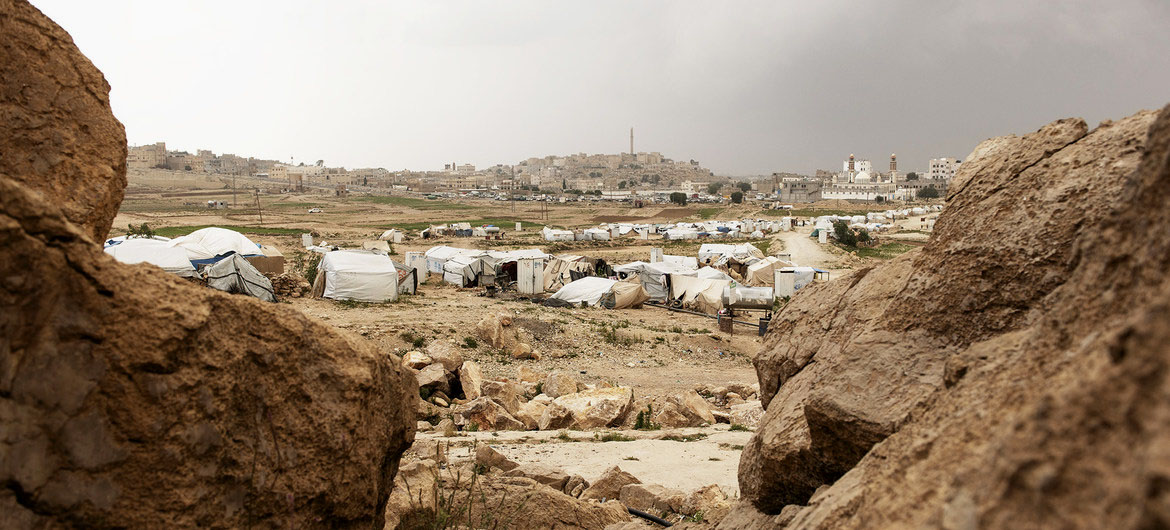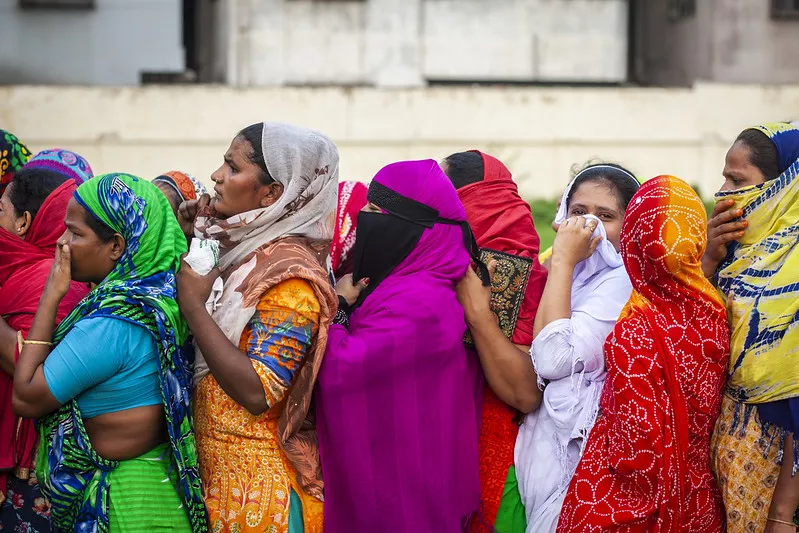Prior to the first recorded Covid-19 case in Yemen in April 2020, the economic warfare waged by all conflict parties had destroyed vital infrastructure and left 24 million Yemenis seeking aid. As Yemen prepared for the arrival of Covid-19, the Houthis had begun their advances on Marib governorate, the remaining stronghold governorate in the north still supportive of the government. Whilst it is partly true to say conflict actors failing to protect civilians and infrastructure in turn breaks down the ‘governance mechanisms’ required for any kind of health response, the situation is a lot more complex. At this stage in Yemen’s conflict there is an increasing need to better understand the reality that many of these conflict actors are themselves embedded in what we would define as a system of governance.
Following six years of conflict, the prolonged nature of the war has given rise to a complex tapestry of official and unofficial armed actors, operating in different configurations in different areas. These actors are now likely to be involved both in acts that we might view as related to conflict which undermine civic interests, and in supporting the official response to Covid-19.
Our research
Our Political Settlements Research Programme (PSRP) Covid-19-peace nexus research focuses on the interaction between Covid-19 responses and conflict and peace. In Yemen, a part of this work examines Taiz, a complexly governed and highly contested city throughout the conflict. This is the first stage of our research partnership between PSRP and both Yemen Policy Center and Yemen Polling Center (YPC), as the Yemeni organisations carry out their “Civic Politics” project.
Our research seeks to examine the local relationships comprising the moving parts of governance and to understand whether Covid-19 responses are reconfiguring local civic interactions, in particular with security actors, and whether measures are consolidating local governance or leaving other local actors such as Civil Society Organisations (CSOs) to manage a response.
YPC is leading data collection using Key Informant Interviews (KIIs) and examining the perceptions of civil servants, NGO employees and security actors on how Covid-19 measures have been received by the public. With its headquarters in Taiz, YPC is well positioned to access interlocutors via their networks and through established levels of trust between fieldwork directors and contacts.
Between 2017 and 2019, trust and confidence in the policing system was slowly developing amongst the public in Taiz but was still relatively low. The arrival of Covid-19 ultimately presents an additional pressure for government aligned institutions and security actors. Now more so than ever, as aid spending on Yemen is being reduced, research to more deeply understand these local relationships and how they shape local responses to crises is timely.
The complexity of security actor function in Taiz
Since 2015 the city of Taiz often referred to as the gateway to southern Yemen and a city under siege, has been contested over time by multiple armed groups including Ansar Allah (the Houthis), sectors of the national army and forces affiliated to the Islah party who are at present, at least provisionally aligned with the Internationally Recognised Government (IRG). The political alignments and affiliations between these local armed groups are complex, non-linear and not static. These groups invariably provide local security yet hold varying contested political claims over differing modalities of governance in Yemen. Even in areas like Taiz, where local governance is more aligned with the IRG, these groups shape the provision of public service, or, responses to health crises.
By July 2019, YPC research highlighted that ongoing conflict had driven a reconfiguration of the policing system and security actor network of formal and informal security actors in Taiz. The research found informal actors to be functioning in the capacity of ‘police’, carrying out public security measures whilst also committing crimes. The study also found that coordination between formal and informal security actors enacting policies in line with state institutions was hampered by political or personal affiliations.
Further field research in 2019 in Taiz suggested that increasingly severe living conditions and the need for basic provisions among communities was negatively influencing social relationships among the community and between armed authorities and humanitarian actors. As fracture has deepened local governance has become more complex in Taiz.
Challenges to the research so far
Our partnership with Yemen Policy Center, YPC and their Yemeni researchers was central in our ability to collect data in a complex conflict setting. YPC has developed an extensive security research programme examining community perspectives of security provision.
A central challenge so far in our research has been the reluctance of participants to answer certain questions, given their political or military affiliations. Security actors have been reluctant, responding to questions involving sensitive issues in previous YPC studies.
In attempting to navigate this, we have encouraged a research focus which centres on how patterns of peoples’ engagements with security actors have changed with the arrival of Covid-19 measures. There is also an opportunity to understand how perceptions of Covid-19 measures could indicate areas of improvement in the future implementation of measures.
Prior to Covid-19, YPC were established in accessing people across governorates, navigating local check points or setting up safe interview locations. YPC field teams continue to make connections, utilising virtual platforms like WhatsApp to carry out trainings and debriefings, and using shortened phone interviews.
Yemeni people have always had to adapt to the challenges of using these platforms during conflict; either navigating surveillance by armed groups or access issues in remote or poorer areas. These factors now tie into the mounting challenges involved in expecting people to be able to stay at home to participate in remote research, given ongoing conflict pressures and cultural dynamics shaping their capacity to be at home.
The next phase
We hope that this first stage of our research brings to light a better understanding of how public perceptions view the evolving Covid-19 response. Given the social contract and pre-existing conditions prior to Covid-19, there is a need now to more deeply understand the functioning relationships between authorities and the civic body, that we naturally assume as part of any response to crisis.
With data for this first stage collected, we have begun the process of analysis, with outputs from Yemen Policy Center, PSRP and IDS forthcoming. This is the first of three research stages. The second will involve interviews with health sector workers, in which we aim to better understand how the Covid-19 health response has functioned in relation to both pre-existing conflict pressures and the complexities of local governance. The third stage will consider the role of women’s groups in Yemen’s Covid-19 response, and we are in the process of revising a women-centred methodology.
By combining all interview sets and reports, we hope to be able to build up a picture of Covid-19 responses at the local level, which would begin to reveal a broader story about the ways in which health responses have been conflict-sensitive, and how conflict dynamics have directly impacted upon Covid-19 health responses.
PSRP are funded by the Foreign, Commonwealth & Development Office (FCDO) undertaking research within the “Covid Collective” and “Covid Collective; Lower Middle Income Countries” funding initiatives. PSRP work with Yemen Policy Center and YPC as they undertake their “Civic Politics” project, funded by the German Federal Foreign Office. The partnership enabled us to collaborate to maximise the number of interviews able to be undertaken without exhausting the research field. PSRP would like thank Yemen Policy Center, YPC, Raiman Al-Hamdani and both funders.

